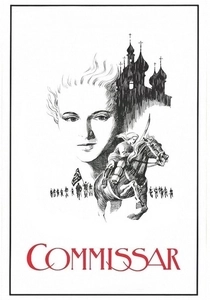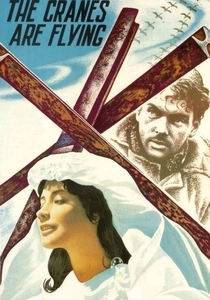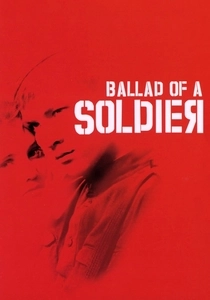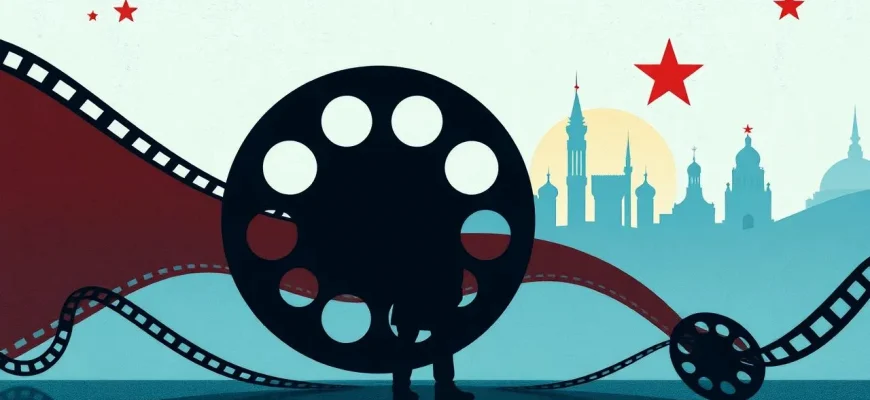In the vast landscape of Soviet cinema, there lies a treasure trove of films that delve into the concept of truth. These films, often cloaked in allegory and metaphor, explore the complexities of honesty, integrity, and the human condition. This curated list of 10 Soviet films provides a window into the soul of a nation, revealing stories that resonate with universal themes of truth and justice. Each film in this collection not only entertains but also invites viewers to reflect on the nature of truth in their own lives.

Come and See (1985)
Description: A harrowing depiction of the horrors of war, this film confronts viewers with the brutal truth of the Eastern Front during World War II, focusing on the innocence lost in the face of violence.
Fact: The film was shot in chronological order to capture the physical and emotional transformation of the young protagonist.
 Watch Now
Watch Now 
The Commissar (1967)
Description: Based on a short story by Vasily Grossman, this film examines the personal and ideological conflicts of a female commissar during the Russian Civil War, revealing truths about duty, motherhood, and humanity.
Fact: The film was banned in the USSR for 20 years due to its critical portrayal of the Soviet system.
 Watch Now
Watch Now 
The Cranes Are Flying (1957)
Description: This poignant war drama explores the personal truths of love, loss, and survival during the Great Patriotic War. It's a testament to the resilience of the human spirit and the search for truth amidst chaos.
Fact: The film won the Palme d'Or at the Cannes Film Festival in 1958, making it one of the first Soviet films to achieve international acclaim.
 30 Days Free
30 Days Free 
The Ballad of a Soldier (1959)
Description: This film tells the story of a young soldier's brief leave from the front lines to visit his mother, highlighting the small truths of human kindness and the impact of war on ordinary lives.
Fact: It was nominated for an Academy Award for Best Original Screenplay, showcasing the universal appeal of its narrative.
 30 Days Free
30 Days Free 
The Overcoat (1959)
Description: Based on Nikolai Gogol's short story, this film uses satire and surrealism to delve into the truth of social injustice and the human desire for recognition and dignity.
Fact: It was one of the first Soviet films to openly criticize the bureaucratic system.
 30 Days Free
30 Days Free 
The Ascent (1977)
Description: Set during World War II, this film follows two Soviet partisans on a mission that tests their moral compasses. It's a stark examination of truth, betrayal, and the human spirit under extreme conditions.
Fact: The film was inspired by a short story by Vasil Bykaŭ, and it won the Golden Prize at the 10th Moscow International Film Festival.
 30 Days Free
30 Days Free 
The Mirror (1975)
Description: Andrei Tarkovsky's masterpiece is a deeply personal exploration of memory, truth, and the passage of time. It blurs the lines between reality and fiction, inviting viewers to find their own truths within its poetic narrative.
Fact: The film was initially met with mixed reactions in the USSR but has since been recognized as one of the greatest films ever made.
 30 Days Free
30 Days Free 
The Irony of Fate (1975)
Description: This romantic comedy uses the premise of mistaken identity to explore deeper truths about love, fate, and the human condition, all set against the backdrop of Soviet New Year celebrations.
Fact: It's a beloved holiday tradition in Russia, often watched on New Year's Eve.
 30 Days Free
30 Days Free 
The Forty-First (1956)
Description: Set during the Russian Civil War, this film explores the complex relationship between a Red Army sniper and a White Army officer, touching on themes of love, duty, and the harsh truths of war.
Fact: It was remade in 1927 and again in 1956, with the latter version gaining international recognition.
 30 Days Free
30 Days Free 
The Seventh Companion (1967)
Description: This film, set in the aftermath of the Russian Civil War, explores themes of truth, loyalty, and the quest for justice through the eyes of a young boy seeking his father's killers.
Fact: It was one of the first Soviet films to be shown at the Venice Film Festival, where it received a special mention.
 30 Days Free
30 Days Free 








